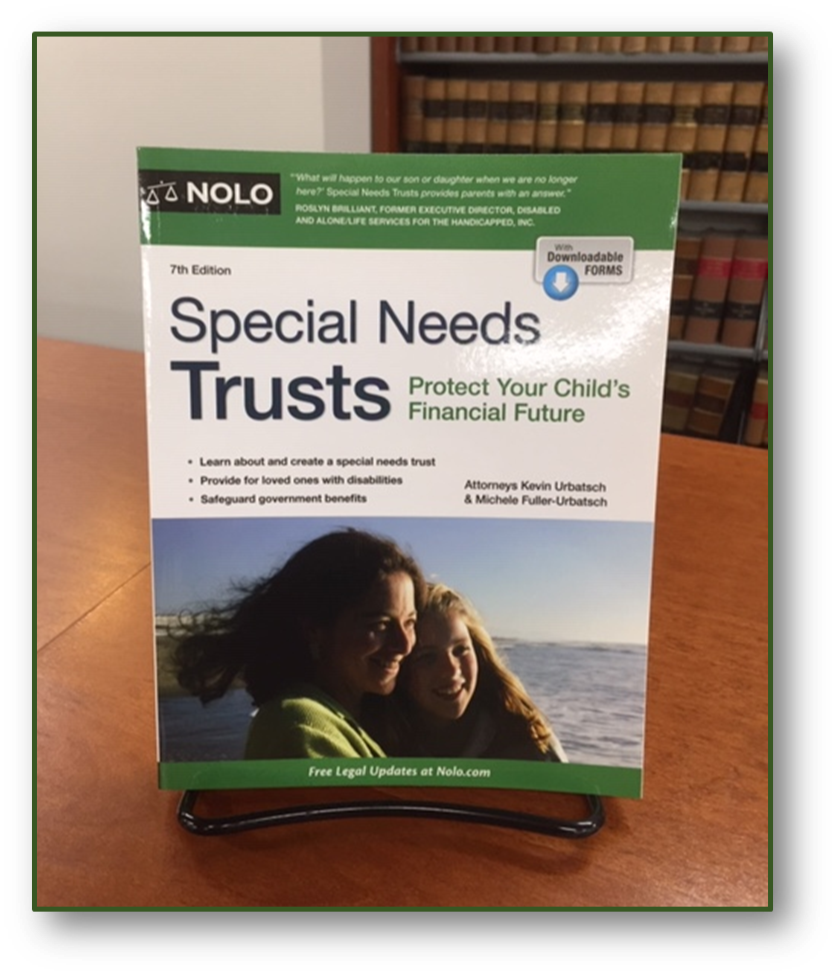Parents of children with special needs understand that their loved ones require not only special care but also special planning. In most, if not in all, cases, individuals with special needs receive benefits under governmental programs, such as Supplemental Security Income and Medicaid. However, unless arrangements are made, any funds the child will receive by way of inheritance will affect the provision of any governmental benefits. Special needs trusts (SNT) are a legal mechanism that permits the leaving of money to a loved one without jeopardizing the receipt of governmental benefits. If you are unfamiliar with SNTs or are unsure of how to establish one, have a look at Nolo’s Special Needs Trusts: Protect Your Child’s Financial Future. This book explains the nuts and bolts of how SNTs work and who can benefit from them. It also addresses how the trust funds can and cannot be used, how to create and draft the SNT, and how to and finalize and fund the trust. Of course, you also need to determine who will administer the trust and act as trustee. For this important topic, the authors use two chapters to explain how to choose a trustee and what the duties of that trustee will be. Other topics of interest include ABLE accounts, pooled trusts, and letters of intent.
If you or someone you know has a loved one with disabilities, be sure to read Nolo’s Special Needs Trusts: Protect Your Child’s Financial Future. It could allow you to rest easy knowing that your child or loved one will be provided for when you are no longer here. You can find it in the Law Library’s Self-Help Collection.
Also, the Law Library has developed a Special Needs Legal Resource Guide with a listing of self-help resources, in-depth legal research materials, and resources available from the Texas State Law Library, the government, and Houston Bar Association.


